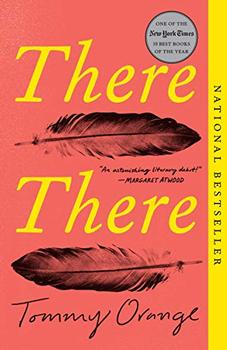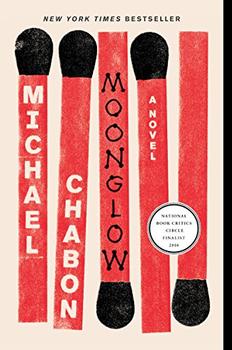Summary | Excerpt | Reviews | Beyond the book | Read-Alikes | Genres & Themes | Author Bio

A panoramic novel set in New York City during the catastrophic blizzard of February 1978.
On the night of February 6, 1978, a catastrophic nor'easter struck the city of New York. On that night, in a penthouse in the Upper West Side's stately Apelles, a crowd gathered for a wild party. And on that night, Mr. Albert Haynes Caldwell―a partner emeritus at Swank, Brady & Plescher; Harvard class of '26; father of three; widower; atheist; and fiscal conservative―hatched a plan to fake a medical emergency and toss himself into the Hudson River, where he would drown.
In the eye of this storm: Hazel Saltwater, age six. The strange events of that night irrevocably altered many lives, but none more than hers. The Blizzard Party is Hazel's reconstruction of that night, an exploration of love, language, conspiracy, auditory time travel, and life after death.
Cinematic, with a vast cast of characters and a historical scope that spans World War II Poland, the lives of rich and powerful Manhattanites in the late 1970's, and the enduring effects of 9/11, Jack Livings's The Blizzard Party is an epic novel in the form of a final farewell.
The task Livings sets himself is a daunting one: how to weave all these uniquely striated lives and damaged psyches into a tapestry that forms a meaningful pattern. It is as if each character we meet in The Blizzard Party is a snowflake pulled from the blinding storm, set upon crushed black velvet and seen through a microscope, brilliantly and uniquely attenuated. How each of these snowflakes, so unique and ostensibly unconnected, swirl and crash into each other over the course of one wild night is a testament to Livings' ability to write a bold clincher...continued
Full Review
(676 words)
This review is available to non-members for a limited time. For full access,
become a member today.
(Reviewed by Peggy Kurkowski).
 Jack Livings' debut novel The Blizzard Party revolves around an incident that occurs during the historic "Blizzard of '78," a massive storm that hit the northeastern United States February 5-7, 1978, burying New England, New Jersey, Pennsylvania and the New York metropolitan area under feet of snow. (This was a particularly harsh winter, as a blizzard had also hit the Midwest about two weeks earlier.) Besides the historic snow totals, it was an extremely memorable storm both for its severity and for how ill-prepared area residents were for the impact.
Jack Livings' debut novel The Blizzard Party revolves around an incident that occurs during the historic "Blizzard of '78," a massive storm that hit the northeastern United States February 5-7, 1978, burying New England, New Jersey, Pennsylvania and the New York metropolitan area under feet of snow. (This was a particularly harsh winter, as a blizzard had also hit the Midwest about two weeks earlier.) Besides the historic snow totals, it was an extremely memorable storm both for its severity and for how ill-prepared area residents were for the impact.
From a meteorological perspective, the strength of the storm was unprecedented. The nor'easter registered hurricane-force 86 mph winds, with gusts up to 111 mph. In addition to the high ...
This "beyond the book" feature is available to non-members for a limited time. Join today for full access.

If you liked The Blizzard Party, try these:

by Tommy Orange
Published 2019
Fierce, angry, funny, heartbreaking - Tommy Orange's first novel is a wondrous and shattering portrait of an America few of us have ever seen, and it introduces a brilliant new author at the start of a major career.

by Michael Chabon
Published 2017
Following on the heels of his New York Times bestselling novel Telegraph Avenue, Pulitzer Prize-winning author Michael Chabon delivers another literary masterpiece: a novel of truth and lies, family legends, and existential adventure - and the forces that work to destroy us.